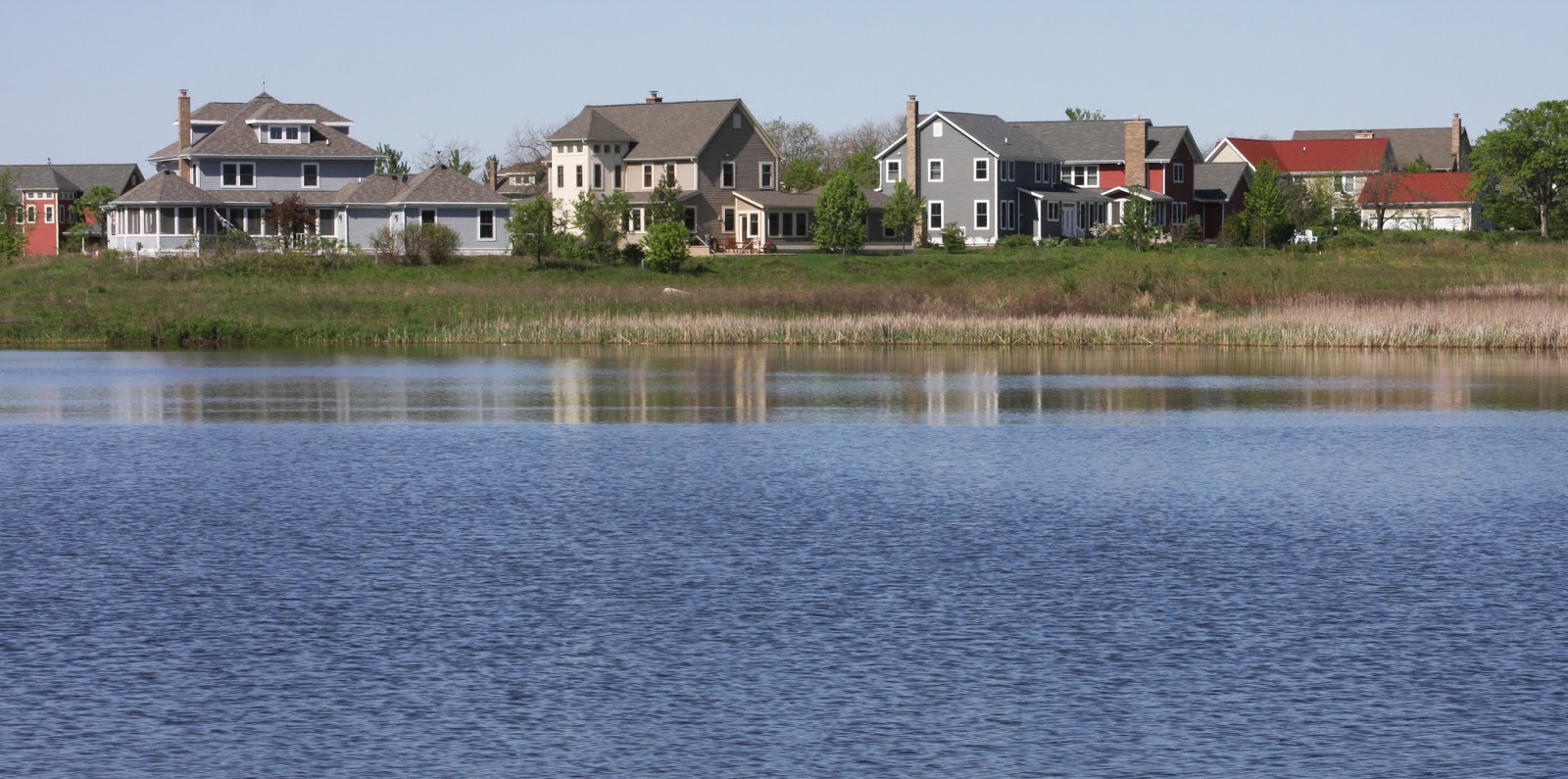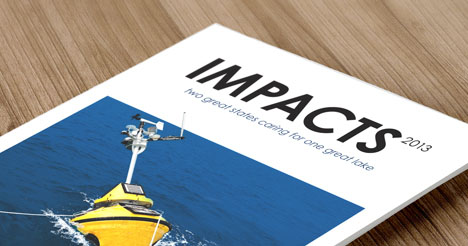 Lawn care decisions play a large role in local water quality and the health of aquatic wildlife. The fertilizers, pesticides, and other chemicals we put on our lawns can be washed into nearby lakes and rivers in stormwater runoff. Once there, these pollutants spur algae growth, clog gills, decrease resistance to disease, and suffocate eggs and newly hatched larvae.
Lawn care decisions play a large role in local water quality and the health of aquatic wildlife. The fertilizers, pesticides, and other chemicals we put on our lawns can be washed into nearby lakes and rivers in stormwater runoff. Once there, these pollutants spur algae growth, clog gills, decrease resistance to disease, and suffocate eggs and newly hatched larvae.
The IISG-led Lawn to Lake program continues to educate homeowners, landscapers, and master gardeners on natural lawn care practices that can improve soil health and protect water quality. The program works with community partners across the region to conduct training workshops and provide ‘how to’ resources for a range of audiences.
Lawn to Lake outreach has led to management changes on an estimated 22,415 lawn acres. These changes are expected to reduce the use of lawn care chemicals, including weed and feed, by more than 3 million pounds a year, protecting nearby aquatic ecosystems from chemical-laden runoff while fostering healthy lawns.
 To learn more about how IISG is empowering communities and individuals to secure a healthy environment, check out our 2013 program impacts.
To learn more about how IISG is empowering communities and individuals to secure a healthy environment, check out our 2013 program impacts.
Lake Erie, one of the Great Lakes that began to rebound significantly thanks to the Clean Water Act and several cleanup projects, is being threatened by toxic blue-green algae. Fed by fertilizers and runoff, the algae can deplete oxygen levels in the water and be detrimental to the lake’s health.
From The Plain Dealer:
“The Western Basin of Lake Erie, located roughly from Toledo to Huron, is becoming seriously affected with toxic blue-green algae. During the summer months, the algal blooms have been so bad that swimmers have emerged from Lake Erie covered in green slime. So far, swimming in Lake Erie has not been prohibited as it was in Grand Lake St. Mary’s, however, the thick algal blooms are not very inviting to swimmers and tends to affect the taste of our drinking water.
The enjoyment of Lake Erie for boating and fishing has also become hampered by the costs to repair clogged engines and the costs of reduced economic drivers, such as fishing charters and other recreational opportunities. We are dangerously close to severely restricting our use and enjoyment of one of the world’s greatest natural resources.”
Read the complete article at the link above to learn more about threats to Lake Erie, and read more about Great Lakes health issues and research at our web page.
 Lawn care decisions play a large role in local water quality and the health of aquatic wildlife. The fertilizers, pesticides, and other chemicals we put on our lawns can be washed into nearby lakes and rivers in stormwater runoff. Once there, these pollutants spur algae growth, clog gills, decrease resistance to disease, and suffocate eggs and newly hatched larvae.
Lawn care decisions play a large role in local water quality and the health of aquatic wildlife. The fertilizers, pesticides, and other chemicals we put on our lawns can be washed into nearby lakes and rivers in stormwater runoff. Once there, these pollutants spur algae growth, clog gills, decrease resistance to disease, and suffocate eggs and newly hatched larvae.  To learn more about how IISG is empowering communities and individuals to secure a healthy environment, check out our 2013 program impacts.
To learn more about how IISG is empowering communities and individuals to secure a healthy environment, check out our 2013 program impacts. 
